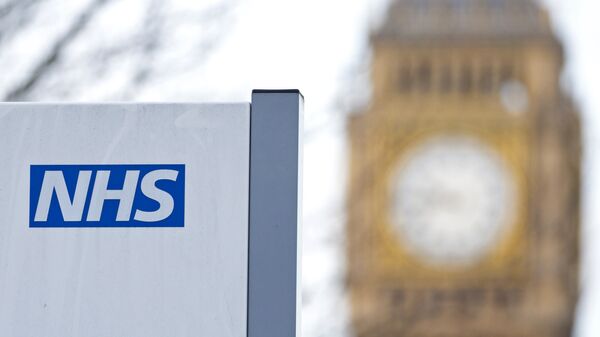There has already been criticism of the back-door privatization of the NHS under the Transatlantic Trade and Investment Partnership (TTIP) deal being brokered between the US and the European Union (EU).
Now that TTIP is generally considered dead-in-the-water, following Trump's decision to rip up the TransPacific Partnership (TPP), advocating instead more bilateral trade deals, attention is now focusing on a US-UK deal to be enacted the moment the UK actually leaves the EU.
TTIP all over again https://t.co/zow8eshVWC #NHS #trade #TTIP #Brexit pic.twitter.com/t7Yi4TyeqO
— War on Want (@WarOnWant) 27 January 2017
Ahead of her meeting with Trump, May responded to a question from the Guardian newspaper asking whether she would be willing to offer US companies access to the NHS as the price of a deal, May said that it was only the "start of the process" of talking about a trade deal, adding: "As regards the NHS, we're very clear as a government that we're committed to an NHS that is free at the point of use."
"We've already seen with Obamacare, that Trump's on the record as saying he sees free market reforms as being the key to getting better healthcare. We know that would have a receptive audience in the UK, where we have a government that has been systematically underfunding the NHS. When asked about this directly, UK Prime Minister Theresa May avoided the question," War on Want's senior trade campaigner, Mark Dearn told Sputnik.
And this will only get worse in the USA now Trump is in power. Let's hope we can keep that zero next to Britain. RT if you agree. pic.twitter.com/8g75qes91S
— NHS Million (@NHSMillion) January 22, 2017
"We already saw during TTIP that the government denied that the NHS was in the deal, whereas the reality of the text shows that the NHS was in the deal and we also know they refused a freedom of information request. So when you hear Theresa May asked directly 'would the NHS be part of a trade deal [with the US]?' she avoid the question. That really does ring alarm bells," he said.
Investors First
One of the most controversial aspects of the TTIP trade deal — as with the EU-Canada Comprehensive Economic and Trade Agreement (CETA) deal — is the Investor-State Dispute Settlement (ISDS) mechanism, which allows a US company to sue a government if its regulatory system prevents that company from selling its goods into that country's markets.
The issue is particularly divisive in the food sector, where most European country's ban the use of growth hormones in meat production or chickens being washed in chlorinated water, both of which practices are allowed in the US.
@PeoplesNHSWales @Independent but #UKIP said we were taking back control????
— iawn cont? (@Shonie75) January 26, 2017
"We know that the US didn't like the cynical rebranding of ISDS — CETA's so-called ICS [Investment Court System] mechanism — and we don't actually know for sure what the US is asking for. But to suggest that it would be tariff-only would really not be in line with what modern trade deals are about. It's removing regulation, opening up access to public services markets and protecting rights for investors," Dearn told Sputnik.
"If public services are combined with an ISDS 'corporate court' mechanism in a trade deal — something both the USA and UK are very keen on — a future attempt to renationalize any or all of the NHS would see US health companies suing the UK for lost profits resulting from their lost ‘market access,' " he said.


